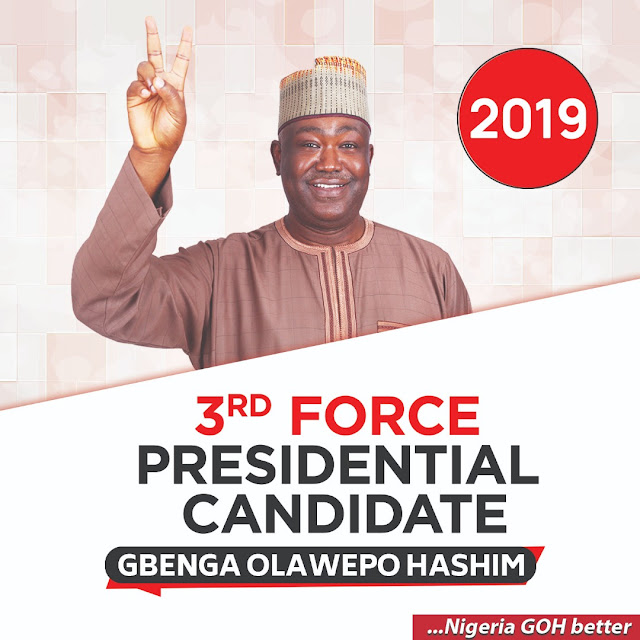Right to stand for elections as an independent candidate BY MR.RIGHTS
Right to stand for elections as an independent candidate
By: Adem Kassie Abebe
Although the right to stand for elections is recognised as
an essential aspect of the right to political participation, international
human rights law does not specifically address the right of individuals to
stand for elections as independent candidates, for example, without being a
member of and sponsored by a political party. In fact, the only implied
reference to independent candidacy is to be found in General Comment No 25 of
the United Nations Human Rights Committee, the organ in charge of monitoring
compliance with the International Covenant on Civil and Political Rights, on
the right to participation. The Committee observes that “[t]he right of persons
to stand for election should not be limited unreasonably by requiring
candidates to be members of parties or of specific parties” (paragraph 21).
What constitutes an “unreasonable” limit to the right of persons to stand for
election is not apparent. As a result of the lack of a clear rule, the law and
practice in relation to independent candidates varies across borders. In some
countries, individuals must be members of political parties to be able to stand
for election. In others, they may stand for elections as independent candidates.
In some others, independent candidates are allowed in relation to local
elections but not in relation to parliamentary and presidential elections.
It is within this context of uncertainty that the African
Court had to decide whether the ban on independent candidacy in Tanzania was
compatible with the right to equality, the right to political participation,
and the right to association in the African Charter on Human and Peoples’
Rights (Tanganyika Law Society and The Legal and Human Rights Centre and
Reverend Christopher Mtikila v The United Republic of Tanzania, Applications
009 and 011/2011). This case is interesting in many respects. Firstly, the case
presented the African Court
the first opportunity to address the margin of appreciation doctrine. Secondly,
the application presented a test case to evaluate the trajectory of the African Court
towards the jurisprudence of other international and regional human rights
organs on similar issues. Thirdly, Tanzania is not the only African
country that bans independent candidacy. The decision of the Court therefore
has consequences for many other African countries.
The African
Court on Human and Peoples’ Rights had not
addressed any case involving the margin of appreciation doctrine. On 14 June 2013 the Court
delivered its judgment in the Mtikila case, the first case in the
history of the Court to be decided on merits in which the applicants succeeded.
The case involves a challenge to a constitutional ban on independent candidacy
in Tanzania
at all levels of elections, namely, presidential, parliamentary and local
council elections. The ban was constitutionalised through the eighth and
eleventh amendments which reversed the decision of the High Court which found
the ban to be a violation of the right to participation and the right to
association of the Tanzanian Constitution. A subsequent decision of the High
Court (Reverend Christopher Mtikila v Attorney General, Miscellaneous
Civil Cause No 10 of 2005 (5 May 2006)), that the constitutional amendments
themselves were unconstitutional, was reversed by the Court of Appeal (The
Honorable Attorney General v Reverend Christopher Mtikila, Civil Appeal No
45 of 2009, Court of Appeal of Tanzania (17 June 2010)).
The margin of appreciation doctrine is a prominent element
of international human rights adjudication. It has been recognised by almost
all major international and regional human rights tribunals, including the
African Commission on Human and Peoples’ Rights. The principle essentially
requires international and regional tribunals to defer to the policy choices of
states in their attempt to give effect to protected rights. The principle has
its roots in the subsidiary nature of international human rights law and
adjudication reflected in, for instance, the requirement to exhaust local
remedies before one may submit cases to supranational human rights tribunals.
According to the African Commission, the principle recognises that respondent
states are “better disposed in adopting national rules, policies and guidelines
in promoting and protecting human and peoples’ rights as it indeed has direct
and continuous knowledge of its society, its needs, resources, economic and
political situation, legal practices, and the fine balance that needs to be
struck between the competing and sometimes conflicting forces that shape its
society” (Prince v South Africa 2004 AHRLR 105 (ACHPR 2004) paragraph
51).
In rejecting the challenge at the domestic level, the
Tanzanian Court of Appeal partly relied on the “political question” doctrine,
which may be equated to the margin of appreciation principle in international
human rights adjudication. The Court specifically observed that:
“[a]part from the legal argument we have advanced there is
a purely practical issue. Where will we stop? The argument is that the
provisions of Art 21 have been abridged since a candidate has to belong to and
be sponsored by a political party. The next complaint will be why should a
parliamentary candidate be required to be of the age of 21 years and a
presidential candidate 40 years? Why not be the age of majority of 18 years?
Also why should the presidential candidate be a citizen born in Tanzania? Why
do we exclude those born outside the Republic simply because their parents were
faithfully serving the Republic outside the country? Are all these not
abridging Art 21?” (Pages 44-45.)
The views of the Court of Appeal were similar to that of
the Inter-American Court of Human Rights which ruled that international law
allowed states the discretion in selecting electoral systems that suit their
social, historical, economic and political realities (Case of Castañeda
Gutman v Mexico,
Inter-American Court
on Human Rights, Judgment of 6
August 2008). The Court concluded that the American Convention on
Human Rights, whose right to political participation provisions are largely
similar to, if not more robust than, the African Charter, did not impose a
specific electoral system. As a result,
“[b]oth systems, one built on the exclusive basis of
political parties, and the other that also allows independent candidacies can
be compatible with the Convention and, therefore, the decision on which system
to choose is subject to the political decision made by the State, in accordance
with its constitutional norms.”(Paragraph 204.)
The case against Tanzania in the African Court is the same as the case
against Mexico
in the Inter-American Court,
except in its scope. While the Inter-American
Court had to decide on the ban on independent
candidates in relation to presidential elections, the African Court had to decide on the ban of
independent candidates in relation to all levels of elections, namely,
presidential, parliamentary, and local elections. Other than this, the issues
are similar. In addition, the African
Court identified two contextual differences between
the Mexican case and the case against Tanzania. First, unlike in Tanzania,
individuals in Mexico
may be sponsored by parties to stand for elections even if they are not members
of that party. In addition, the African
Court noted that the requirements for creating a
political party were particularly cumbersome in Tanzania. However, the relevance of
these contextual differences in influencing the final outcome was marginal.
Despite the fact that there is no specific recognition of a
right to stand for elections as an independent candidate in the African Charter
or relevant human rights instruments, the African Court ruled that the ban on
independent candidacy violated the individual right to equal protection
of the law and the prohibition against discrimination (Articles 2 and 3), the
right to association (Article 10), and the right to political participation
(Article 13) of the African Charter. The Court held that Tanzania did
not prove that there was a legitimate interest to be served by banning independent
candidacy. In any case, the Court found that the absolute ban on independent
candidacy was found to be disproportional to any stated aim of fostering
national unity and solidarity. The Court also found that the ban had the effect
of indirectly compelling aspiring politicians to join political parties to be
eligible for public office in violation of Article 10(2). This later provision
provided an important legal leverage that is not explicitly recognised in other
human rights systems including the American Convention on Human Rights. The
decision makes the African Court
the first supranational tribunal to recognise the right of individuals to stand
for elections as independent candidates.
Although the outcome of the case has highly restricted the
extent of margin of appreciation states enjoy in giving effect to the right to
political participation, the Court did not sufficiently deal with the relevance
of the doctrine in the context of allowing states to identify the best way to
give effect to the right to stand for elections. The Court proved to be less
deferential not only towards another regional tribunal, the Inter-American Court, but also a domestic
court, the Tanzanian Court of Appeal. Whether or not the Court will sustain
this very narrow conception of the margin of appreciation doctrine will be
seen. Nevertheless, the decision of the Court clearly demonstrates its
willingness to deviate from existing jurisprudence of other regional and
international human rights tribunals.
There is no question that the outcome of the decision of
the African Court
is profound in that it recognised the right to individuals to stand for
elections as independent candidates. However, the Court did not sufficiently
address some relevant issues. Firstly, the Court did not assess the
implications of the ban on independent candidacy in relation to the different
levels of elections, namely, presidential, parliamentary and local elections.
For instance, the ban on independent candidates may be more justifiable in
relation to presidential elections than local elections. Secondly, the Court
did not look at the implications of its decisions to the electoral systems of
states. For instance, countries with the proportional representation electoral
system, where political parties take seats depending on the number of votes
they received, would find it more difficult or demanding to allow independent
candidates than countries with single constituency first-past-the-post
electoral systems. These and other issues would have to be ironed out in future
cases.
It should also be noted that Tanzania is not the only African
country that bans independent candidates. The decision of the Court therefore
has significant implications to many countries. The decision may spark a wave
of cases against other African countries with a similarly ban. In South Africa,
for instance, independent candidates are allowed in relation to local elections
but not in relation to provincial and parliamentary elections. Given the fact
that the African Court
took note of the particular difficulty of forming a political party in Tanzania, it is
possible that the Court may uphold the ban in relation to other countries
depending on the requirements to establish a political party. It is important
to note that, despite the potential impact of the application on states other
than Tanzania,
no other state applied to intervene as an interested party. Such an
intervention is allowed under Article 5(2) of the Protocol establishing the
Court. It is likely that other states were not even aware of the case before
the Court. Once the Court establishes itself as a notable element of the
African human rights system, states will start paying attention to its
activities.
Adem Kassie Abebe is a post-doctoral fellow at the University of Pretoria (South Africa) and the article was
first published on http://africlaw.com





Comments
Post a Comment